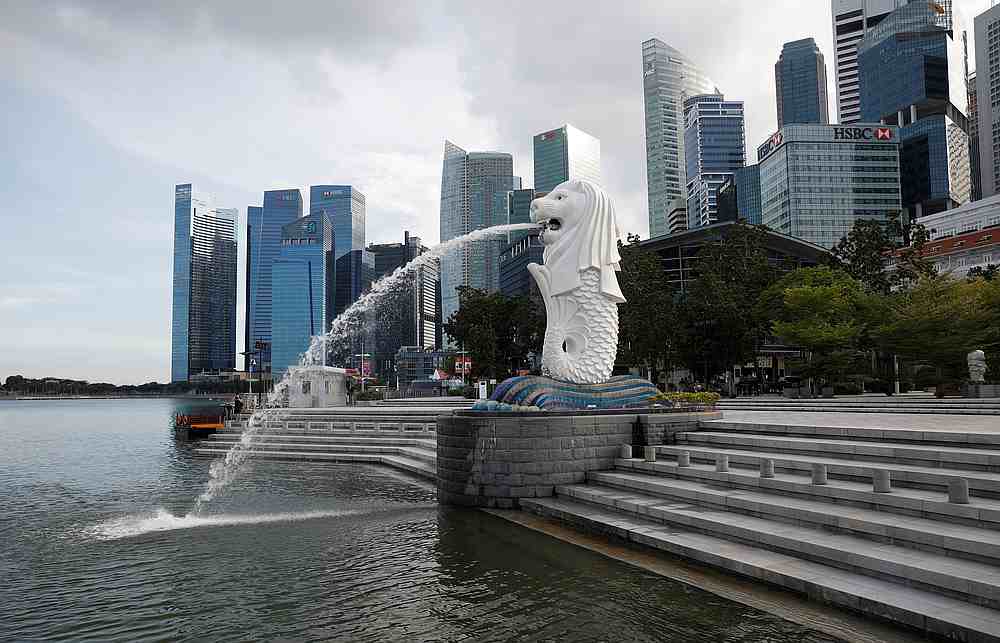SINGAPORE, April 30 — The livelihoods of many people are at risk or have already been shaken due to the Covid-19 pandemic, with workplaces fully or partially closing and businesses downsizing and suspending or adopting a cautious approach to hiring.
Insurance broker Aon did a survey with 1,889 organisations around the world, including 196 companies in Singapore, and found that four per cent of firms here had cut down their workforce and another 21 per cent are actively considering it as a result of the ongoing crisis.
Similarly, eight per cent of companies have granted leave of absence to employees and another 21 per cent are actively looking at that option.
Preliminary data released yesterday by the Ministry of Manpower (MOM) showed that total employment in Singapore in the first quarter of the year — excluding foreign domestic workers — dropped by 19,900, mainly due to a significant reduction in foreign employment.
This is the sharpest contraction since 2003, when the severe acute respiratory syndrome (Sars) hit the country.
Pay cuts and pay raises
Aon surveyed 1,889 organisations around the world between April 7 and 10, following an initial study conducted three weeks before.
Its findings showed that the pandemic has resulted in 10.7 per cent of companies asking employees to take pay cuts on a voluntary basis and a similar proportion asking employees to do the same involuntarily.
Executive officers are most likely affected by these pay cuts, Aon said in its report.
In general, about 33 per cent or a third of the firms surveyed are cutting pay across their full workforce, both voluntary and involuntarily.
Na Boon Chong, managing director and partner of human capital solutions of South-east Asia at Aon, said: “Among survey respondents in Singapore, pay reduction starts at the top levels while protecting the rank and file as much as possible.”
In the span of three weeks between the surveys done in March and April, the number of companies in Singapore delaying or cancelling pay raises for their employees had gone up, Aon found — from 8.2 per cent to 20.4 per cent.
This was still lower than the figures in other parts of the world, though. For example, it went from 14 per cent to 32 per cent in North America and 17 per cent to 35 per cent in Europe.
Freeze on hiring
As Singapore grapples with the economic impact of the pandemic, businesses are looking to cut costs and reshuffle manpower needs.
Out of the 196 companies surveyed by Aon,
* 30 per cent reported that they have implemented hiring freezes
* Six per cent delayed hiring approaches or identifying candidates for recruitment.
* 46 per cent went for “very selective or cautious” hiring and did it only to replace critical roles
However, there were also some companies that reported no change to hiring patterns (16 per cent) or even accelerated hiring (one per cent).
Six in 10 of these companies with normal or accelerated hiring provide essential products and services during the circuit-breaker period, the survey found.
Alexander Krasavin, partner and chief commercial officer of human capital solutions at Aon, said that businesses are under “tremendous pressure” to manage costs while supporting their employees at this time.
“In coordination with the government’s efforts, the top priority for companies is surviving the pandemic with no or minimum lay-offs.
“Our study found that the outbreak has accelerated the future workforce strategy of companies towards work-from-home (options) and flexible hours, workforce agility and a digital transformation agenda.”
What employers are doing
Another encouraging finding from the survey was that few employers in Singapore have altered employees’ health and benefits plans and retirement programmes.
Only one per cent of companies suspended extra benefits such as profit sharing or retirement contribution plans, and 4.1 per cent reduced paid leave benefits.
On the other hand, companies reported that they are:
*offering scheduling flexibility to employees with children (69 per cent)
* providing payments when needed and making equipment purchases to assist employees working from home (63 per cent)
* providing temporary increases in sick leave entitlements (30 per cent)
* allowing employees to use sick leave for Covid-19-related quarantines, in addition to what is required by law (33 per cent)
* allowing employees to use sick leave to care for children when they are off from school, in addition to what is required by law (15 per cent)
Asked how the experience of responding to the pandemic might change future strategies in their workforces, more than half (56 per cent) of the 196 companies in Singapore expected the pandemic to spur digital work processes at a faster rate.
A great majority (89 per cent) of the companies anticipated that their plans to try different working models such as having more flexible hours and working from home would speed up as well.
Na said: “Covid-19, in all likelihood, will accentuate the movement towards stakeholder capitalism where employees, customers, suppliers and community receive as much consideration as shareholders.” — TODAY






















